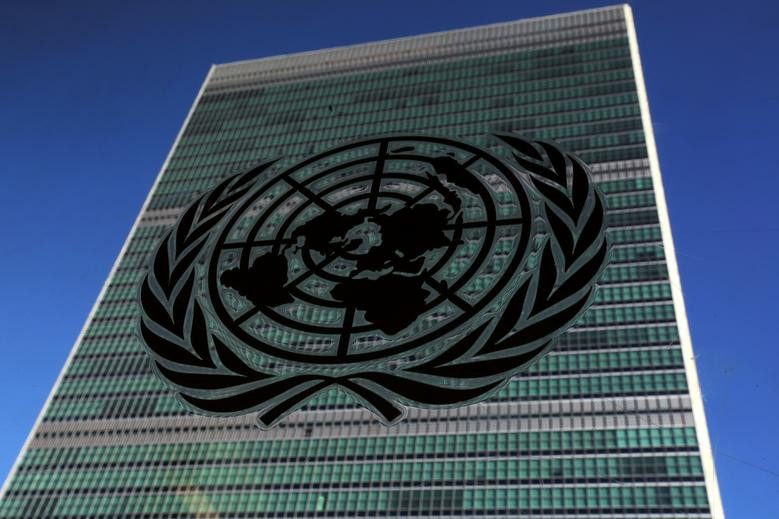The government will submit the human rights report of Bangladesh to the UPR by August 7 ahead of the discussion

File photo: The United Nations logo is pictured in front of the United Nations Headquarters building during the 71st United Nations General Assembly in the Manhattan borough of New York, US on September 22, 2016 Reuters
Right before the 12th national elections, the government will present its position on the human rights situation in Bangladesh at the United Nations.
Bangladesh will respond to various questions and comments from member states in the 44th session of the Universal Periodic Review (UPR) of the United Nations Human Rights Council to be held in Geneva in November.
Earlier, Bangladesh raised its position on the human rights situation in UPR three times. However, due to the possibility of national elections in December or January, concerned parties thought that member countries might be more interested in Bangladesh's democracy and other rights.
The government will submit the human rights report of Bangladesh to the UPR by August 7, and there will be a discussion on it in November in Geneva.
When asked about this, Foreign Secretary Masud Bin Momen said: "We have completed the necessary preparations to submit the report to the UPR. Several meetings have been held with representatives of various government ministries, agencies, and civil society. Based on everyone's opinion, the government will submit the report by August 7."
What is UPR?
The Universal Periodic Review (UPR) is a participatory process of the United Nations human rights system, reviewing the human rights situation of the 193 member states of the United Nations every four and a half years. Recommendations are given to improve the situation.
The overall human rights situation and behavior of UN member countries are discussed in this forum. Diplomatic considerations are of great importance since one country talks about the political, economic, developmental, and cultural rights situation of another country. Representatives of civil society are also heard, playing an important role.
The first UPR phase at the United Nations began in 2009. On February 3 of that year, the government highlighted the human rights situation in Bangladesh. Then on April 29, 2013 in the second phase and in the third phase on May 14, 2018 Bangladesh came into discussion.
In the first two episodes, the foreign minister participated in the discussion on behalf of Bangladesh, but in the third episode, the law minister answered various questions on behalf of Bangladesh.
What discussion about Bangladesh?
Bangladesh has repeatedly recommended several issues in the UPR discussions, including the right to life and security of people, freedom of expression and media, strengthening the National Human Rights Commission, increasing cooperation with the United Nations human rights system, preventing and remedying violence against women, children, and workers, along with ensuring occupational safety.
In the first phase, Bangladesh did not accept two recommendations out of 42, related to the abolition of the death penalty and homosexuality. In the second phase, five out of 196 recommendations were not accepted, all related to the same issues.
In the third phase, out of 251 recommendations to improve the human rights situation, Bangladesh did not accept 73, including those with the term "law and order force." Interestingly, some recommendations that were accepted in the first and second phases were not accepted in the third phase.
Political platform
The UPR is the largest and most powerful of all human rights mechanisms in the United Nations. It is also the biggest political platform and can be seen as a subtle political weapon.
In this regard, former foreign secretary and Jawaharlal Nehru University visiting professor Md Shahidul Haque said: “UPR is a political matter where countries consider the political, economic, developmental, and cultural rights of others from the perspective of international standards and their own ideology. Some countries may use it as a geo-political weapon, making it a complex process.”
Regarding the discussion on Bangladesh in the UPR just before the elections, he mentioned that it would hold more importance, as Bangladesh has always been considered a test case.
Shahidul Haque said: “The development and human rights situation of Bangladesh has always been considered as a test case. Because of this, others were interested in Bangladesh before and will continue to be.”
What Bangladesh can say?
Bangladesh has always participated in the UPR constructively and with an open mind. The government acknowledges that Bangladesh is not a complete and ideal state without problems.
Shahidul Haque emphasized the importance of making others understand that Bangladesh is on the right path to improve human rights and is progressing accordingly. Diplomacy plays a significant role in this process.












